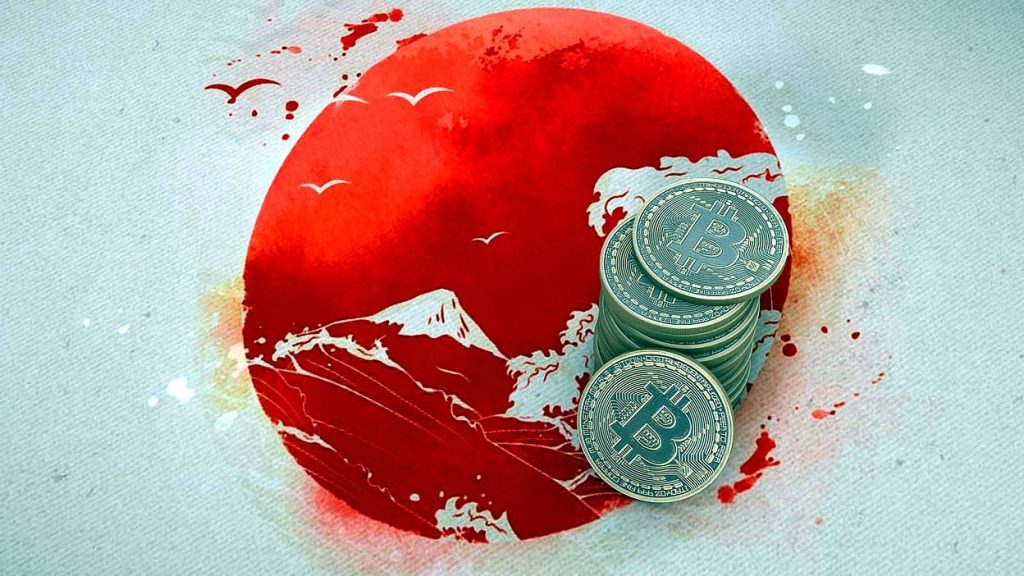Japan Rejects Bitcoin for National Reserves, While Private Sector Continues to Invest
26.12.2024 20:00 2 min. read Alexander Zdravkov
Japan’s government has decided against incorporating Bitcoin into its national reserves, citing its volatile nature and the fact that it falls outside the scope of traditional foreign exchange assets.
While the government maintains a cautious stance, private entities like Metaplanet are eagerly investing in Bitcoin, highlighting a stark contrast in how the public and private sectors view the cryptocurrency.
In a recent response to an inquiry about Bitcoin’s potential as a reserve asset, Japan’s government emphasized the importance of reserve stability, which Bitcoin’s unpredictability undermines. They noted that Bitcoin does not fit the framework for foreign exchange assets, a crucial part of Japan’s strategy.
The government also pointed out that discussions around Bitcoin reserves are still in early stages globally, making it difficult to form a concrete opinion on the matter.
On the flip side, private companies are capitalizing on Bitcoin’s growth potential. Metaplanet, a Japanese investment firm, mirrored U.S. company MicroStrategy’s approach by adding substantial amounts of Bitcoin to its holdings. Metaplanet’s investment strategy signals a strong belief in Bitcoin’s long-term value despite its volatile nature, highlighting a disconnect between private-sector optimism and government caution.
Globally, countries like Russia are already exploring Bitcoin’s use in international trade, using it to circumvent Western sanctions. This is part of a broader trend where Bitcoin is becoming more integrated into global financial systems, even as governments like Japan remain hesitant to embrace it as part of their official reserves.
-
1
Trump’s Two big Bitcoin Moves: Key Catalysts or Just Noise for BTC Price?
08.07.2025 7:30 2 min. read -
2
Speculation Surges as Binance BTC Futures Volume Tops $650 Trillion
04.07.2025 17:37 2 min. read -
3
Bitcoin Market Stalls as Profit-Taking, Whale Dispersal, and Sideways Action Define the Cycle
01.07.2025 20:00 3 min. read -
4
Which Is the Next Bitcoin Price Target?
06.07.2025 20:00 2 min. read -
5
Dollar Weakness Signals Major Bitcoin Move Ahead, Data Suggests
09.07.2025 21:00 2 min. read
Public Companies Now hold Over $100 Billion in Bitcoin — 4% of Total Supply
According to new data shared by Bitcoin Magazine Pro, publicly traded companies now collectively hold over 844,822 BTC, valued at more than $100.5 billion, marking a historic milestone for institutional Bitcoin adoption.
Trump Media Holds $2B in Bitcoin as Crypto Plan Expands
Trump Media and Technology Group, the parent company of Truth Social, Truth+, and Truth.Fi, has officially disclosed that it now holds approximately $2 billion in Bitcoin and Bitcoin-related securities.
Strategy Adds 6,220 BTC, Pushing Total Holdings Past 607,000
Michael Saylor’s Strategy has confirmed another major Bitcoin purchase, acquiring 6,220 BTC last week for approximately $739.8 million.
Bitcoin Open Interest Hits $42B as Funding Rates Signal Bullish Overextension
Bitcoin’s derivatives market is heating up, with open interest climbing back to $42 billion while funding rates continue to surge.
-
1
Trump’s Two big Bitcoin Moves: Key Catalysts or Just Noise for BTC Price?
08.07.2025 7:30 2 min. read -
2
Speculation Surges as Binance BTC Futures Volume Tops $650 Trillion
04.07.2025 17:37 2 min. read -
3
Bitcoin Market Stalls as Profit-Taking, Whale Dispersal, and Sideways Action Define the Cycle
01.07.2025 20:00 3 min. read -
4
Which Is the Next Bitcoin Price Target?
06.07.2025 20:00 2 min. read -
5
Dollar Weakness Signals Major Bitcoin Move Ahead, Data Suggests
09.07.2025 21:00 2 min. read


